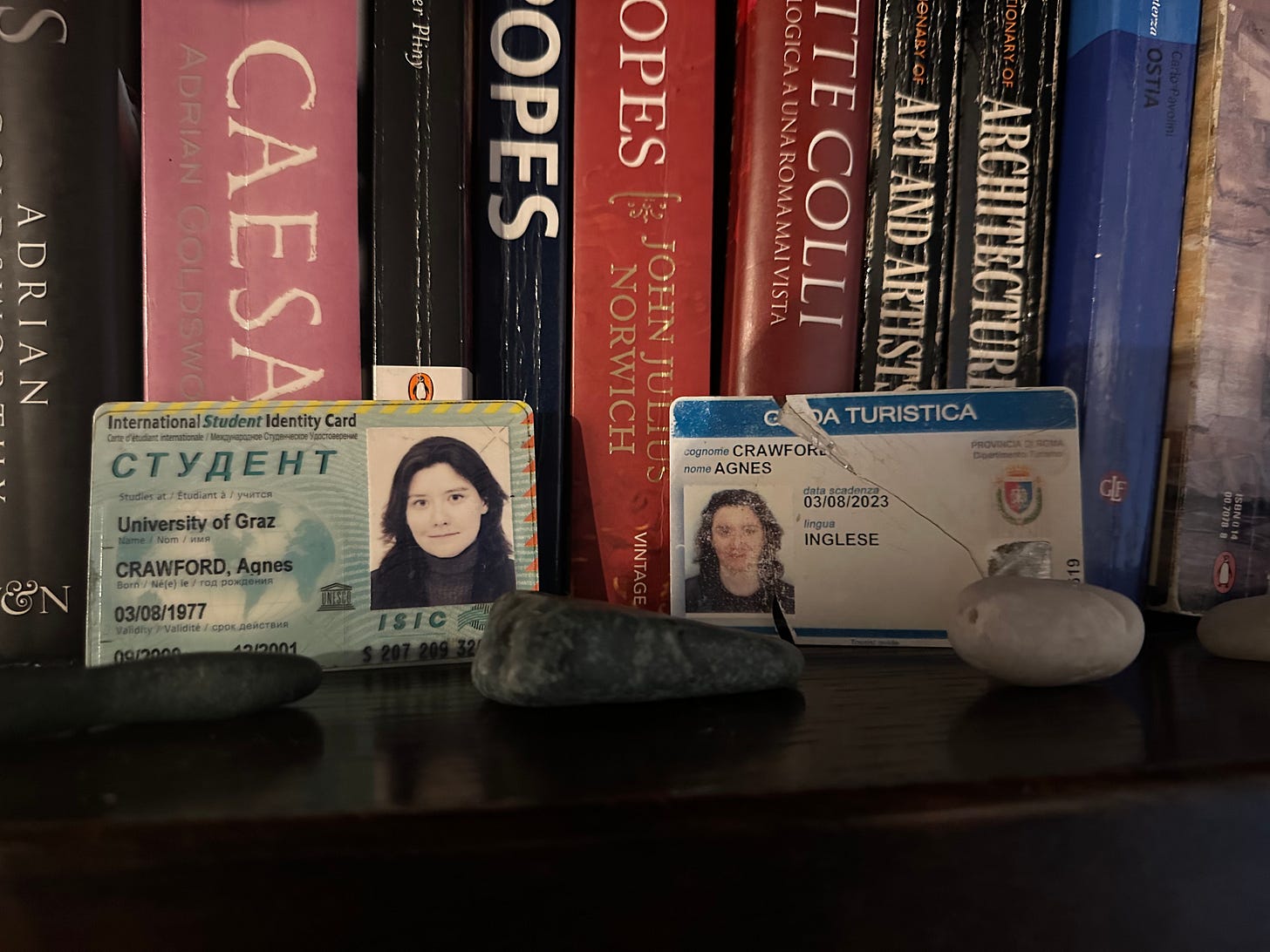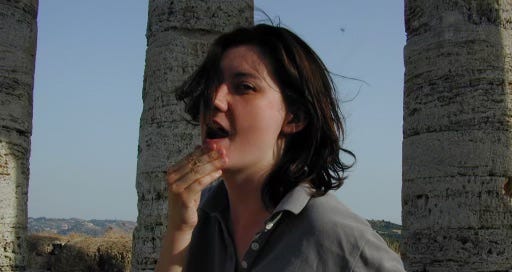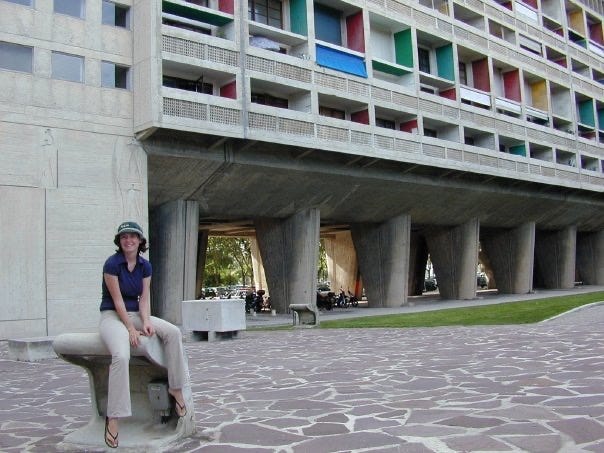Twenty-five years ago today, on the last Saturday of the first month of a shiny new millennium, I moved to Italy for perhaps six months. It feels like yesterday that my parents waved me off at Heathrow.
I was twenty-two years old and had graduated six months earlier with a degree in Architectural History from Edinburgh University. It was a different, undocumented world: I didn’t own a computer or a mobile phone; there were no low-cost airlines; I “wasted” time reading decent novels; getting on a plane didn’t involve passing through a metal detector; and British twenty-two year olds could decide, on a whim, to live and work anywhere in the European Union.
I’d like to say I came to Italy exclusively for noble and erudite cultural reasons, but if I’m honest it was largely a yearning for sunshine, exotically crumbling grandeur, a Vespa, and to casually answer the phone with Pronto!. Frankly, and gauche as it is, I think I thought it would make me seem more interesting. Also I’d read and reread Brother of the More Famous Jack (if you haven’t you must, it’s wonderful), and the heroine goes to Rome for a bit. I’m sure that had a part to play.
I also came for the same reason I would become a guide: I was painfully shy, and very much didn’t want to be. Doing something exciting and terrifying felt necessary, and so it was that I accidentally emigrated. As I stepped off the Alitalia flight that January evening, knowing not a soul in the whole country, as the air hostess’s melodically exotic arrivederci rang in my ears I was giddy with excitement and trepidation.

I had visited Italy a few times: a school trip to Venice, family holidays, a university trip to Rome. I’d also spent a summer in Florence when I was twenty where in theory I was learning Italian and where I was, in fact, being twenty over a summer in Florence, which was reward in itself.
My degree dissertation was on buildings in the paintings of Piero della Francesca and it had been, flatteringly, suggested I might like to do a PhD. I wasn’t at all convinced but thought that if I did I’d probably need to know rather more Italian: as good an excuse as any for a foray abroad. And so it was that I moved to Rome, despite having left school after years of being radically hopeless at French and entirely convinced that I was physiologically incapable of learning a foreign language. This, fortune would have it, turned out not to be true.
I found a job in a shonky language school and spent long days of buses and trams and trains to business parks and improbable offices in the unlovely Roman hinterland on dreich winter days clasping Tuttocittà, the Rome A to Z. I was perpetually lost. It wasn’t much fun. After perhaps a year I progressed to a smarter school, and could walk to lessons in the centre of the city. I taught charming civil servants at the Senate; two delightful chaps at the Quirinal who travelled everywhere with President Ciampi (and adored him); and a couple of acerbically amusing TV producers at Berlusconi’s studios behind an ancient aqueduct on the Caelian Hill, they worked on a show called Buona Domenica which they cheerfully professed to be dross (do you watch the programme, I asked innocently one day. Macché, they replied, assolutamente no!).
This—I thought as I wandered between my classes past crumbling palazzi and ruined temples, the bleak IT offices and light industrial parks swiftly receding into memory—was more like it.
Romans, I soon discovered, don’t learn English when it gets hot and so in my second Roman summer, nearly twenty-four years ago, I began working for a budget tour company giving tours in quite the most ad hoc manner to rowdy groups largely made up of hungover Australian backpackers. After three months of anxious, nauseous terror, it turned out I was both quite good at talking to people and enjoyed it. In Italy guiding is a licensed profession and so I embarked on the Byzantine process of having my British education recognised and qualifying as a Rome guide.
The wheels of bureaucracy turned slowly and I shed many tears of frustration—the UK school system is twelve years, the Italian is thirteen; you must translate your twenty-thousand word dissertation, I was told on one occasion (I didn’t)—and ran into many administrative dead ends. There were also many helpful people (thank you to the official at the Ministry of the University who I eventually found who knew exactly what was required; thank you to Dr Jim Lawson, my former tutor at Edinburgh, who wrote in elegantly Renaissance Italian to explain how the Scots system worked and fished out all of my exam results; thank you to the commission for the famously tough oral guida turistica exams which were held in public at a hall at the then Province of Rome offices and who extended warm congratulations on my efforts).
My persistence paid off, and I had a clear idea that now properly qualified I wanted to share the excitement of exploring Rome, and the sense of discovery which comes from following those infinite threads which make up the extraordinary and complex fabric of the city. That is why I started Understanding Rome fifteen years ago. Gradually, organically, it has become more than I ever hoped it would and I see new things in the city every day. Thank you all for reading and for joining me in exploring this relentlessly exciting city!
This is a edited version of a free newsletter first sent in January 2023






This could form part of a brilliant chapter in a book…just saying. 😉 I shall remain optimistic and look forward to seeing you again in a few weeks.
You are celebrating your very own Giubileo! Complimenti! I really enjoy your Substack. Here's to the next 25 years!